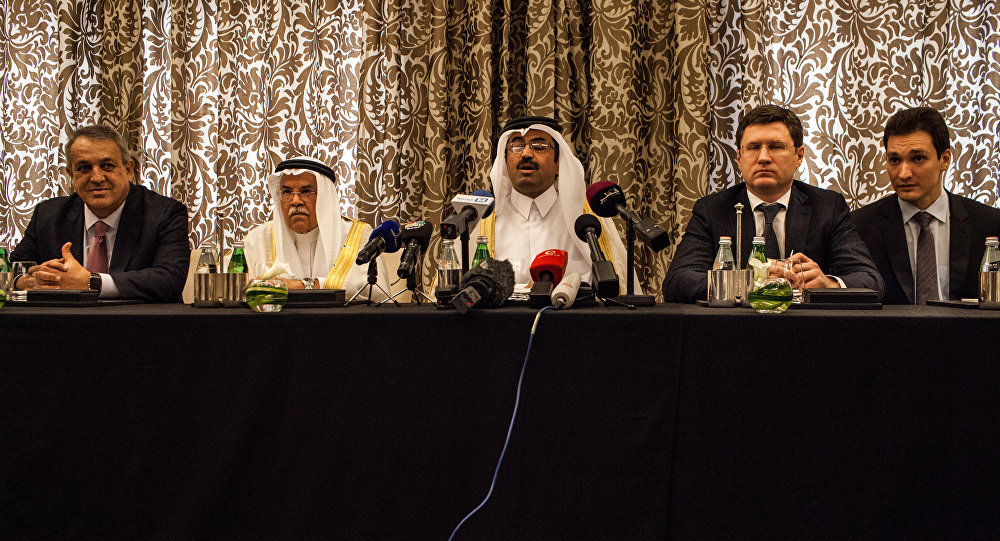
“Russia has played a master stroke in the current oil crisis by taking the lead in forming a new cartel, but it’s a move that could spell geopolitical disaster,” Upadhyay says.
The meeting between Russia, Qatar, Saudi Arabia and Venezuela on February 16, 2016, was the first step, he says.
“During the next meeting in mid-March, which is with a larger group of participants, if Russia manages to build a consensus —however small —it will further strengthen its leadership position.”
The expert explains that Russia is stepping in to negotiate with OPEC nations. And “with its military might, Russia can assume de facto leadership of the oil-producing nations in the name of stabilizing oil prices.”
He further adds that Russia has all the chances to get an agreement with Saudi Arabia, whose relations with the US have been recently strained due to disagreements over the lifting of sanctions on Iran.
With all the major Gulf nations agreeing, the author suggests, Iraq, “which is without a credible political leadership, will also likely follow suit if Russia assures them of stronger support against ISIS (Daesh).”
If the above scenario plays out, he further says, “Russia will emerge as the de facto leader of the major oil producing nations of the world, accounting for almost 73 percent of the global oil supply.”
Along with this, Russia has been at the forefront of plans to move away from the Petrodollar, and Moscow has formed pacts with various nations to trade oil in local currencies. With this new cartel of ROPEC (Russia and OPEC nations), the author suggests, a move away from the petrodollar will become a reality sooner rather than later.
“Russia is smart. Vladimir Putin is genius. Moscow senses the opportunity that is almost tangibly floating about in the low crude price environment and appears to be ready to capitalize on it in a way that would reshape the geopolitical landscape exponentially.”
“Though a solution in Syria is welcome, a large cartel of major oil producing nations of the world with Russia as the head would be a major upset to the current balance of power. With this potential in mind, the mid-march meeting should be very interesting for the global oil patch – well beyond talk of production cuts and supply gluts,” he concludes.